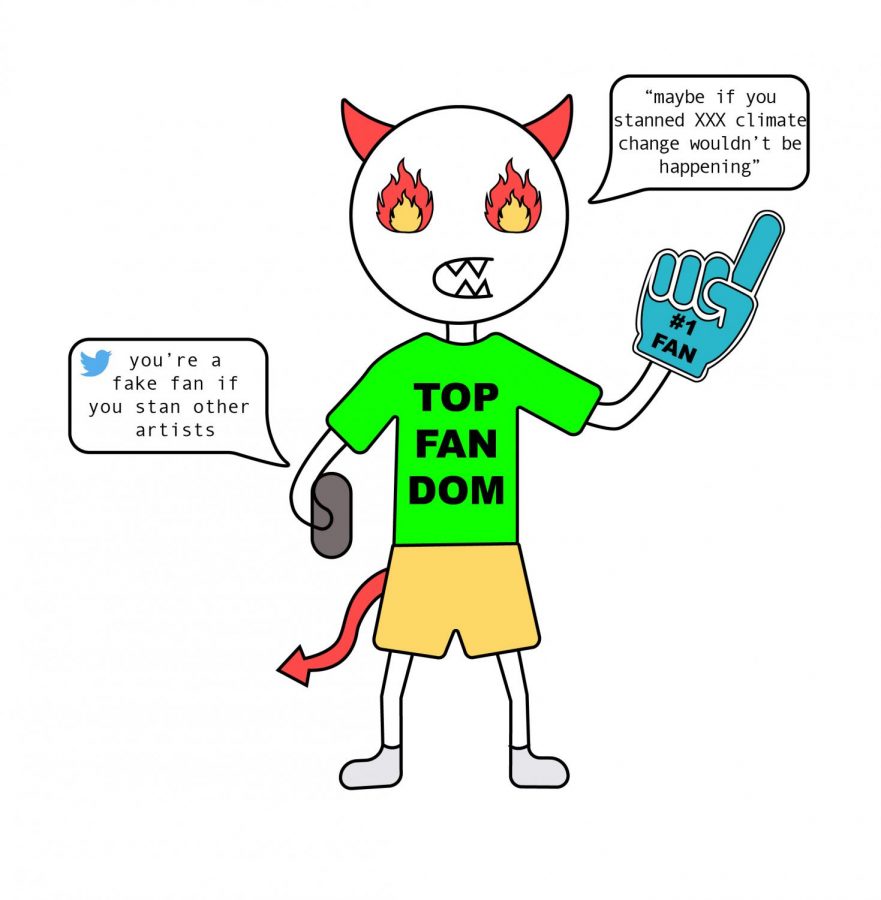OPINION: Obsessive fanaticism – the monster in the closet
Fans often verbally attack each other, creating a toxic environment.
With the massive amount of high-intensity energy and passion present in many fandoms, toxic fan behavior is almost inevitable.
This is especially prevalent in the music industry, where fans of singers and groups avidly compete to help their idols rise up in music ranking charts, such as iTunes and Billboard, and win competitions for streaming. Their competitiveness leads them to use social media, like Twitter or Instagram, to attack other fans for not showing enough support or even harassing fans of other celebrities.
Though the fans who engage in this type of behavior may think they are being supportive and showing their love for the music artists, toxic fans are only hurting their own idols and fandoms. Their actions damage the reputation of their fandom and put unnecessary strain on their idols, who feel responsible for their fans’ behaviors. Because toxic fans put so much effort into supporting their artist, they feel entitled to their idols and content, as Rachael Lefler comments in her article “What’s Toxic Fandom, and What Creates It?” They feed off a sense of superiority because they believe they are the true and better fans, and put down others who show support less intensely.
Most fans are simply eager to support and share what they love with their friends and others. However, the actions of a few bad apples overshadow these many fans, and it is up to the fandom to shut down the type of toxic behaviors when they see it, by calling it out, or informing people of their behavior’s negative effects.
People need to support artists in positive ways. There’s no need to prove loyalty by putting others down, whether of the same fandom or another. It is important to keep in mind that everybody has different tastes and ways of supporting their favorite artists. Even if they do want to support their artists in the same way, their lifestyles also may not permit them to do so as people may not have enough time to livestream music videos, or enough money to buy CDs.
Toxic fanaticism is detrimental not just to others but also to the very same people the actions were meant to support.


